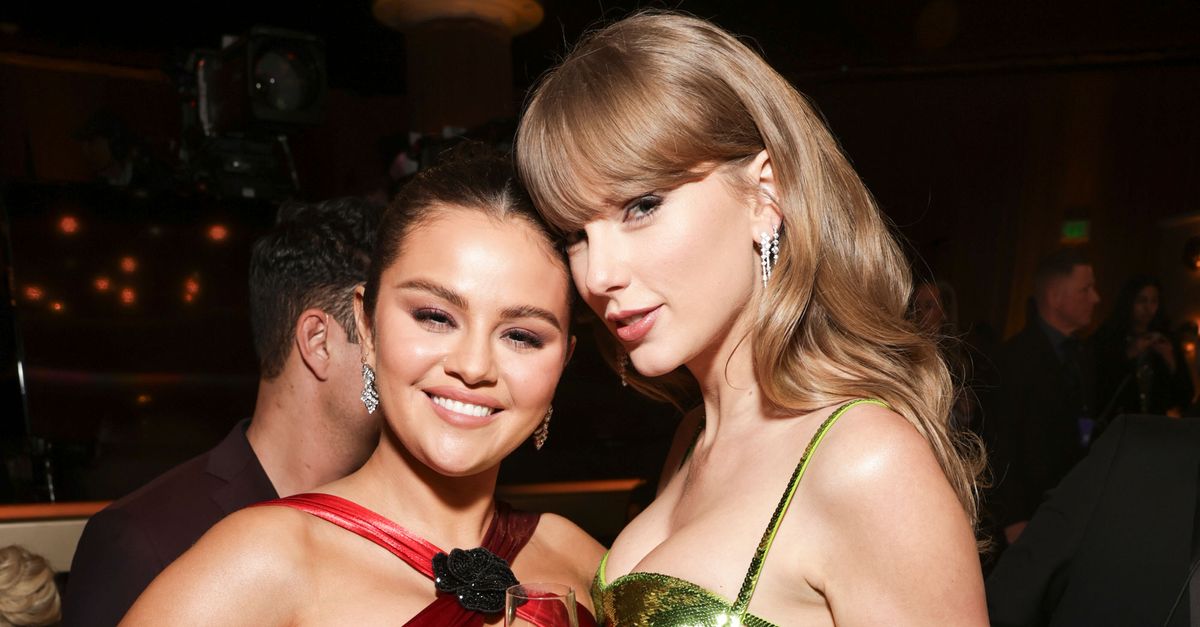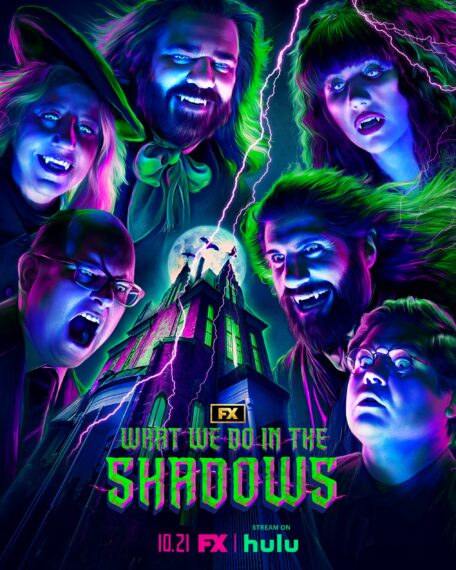Finales are really tricky when a show is in limbo and doesn’t know if they’re just closing out a season or if it’s curtains for the series.
With The Orville: New Horizons Season 3 Episode 10, Seth MacFarlane and his team seem prepared to call it a good run, tying things off in a charming and unambiguous way.
To be sure, they’ve left plenty of narrative possibilities on the table for a potential Season 4, but they didn’t risk leaving viewers hanging here if the renewal doesn’t materialize.
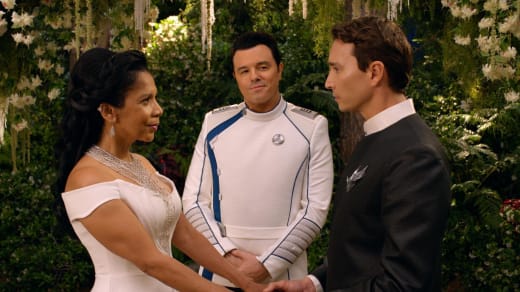
Not only do they provide the happiest of conclusions for Isaac and Dr. Finn — one that heralds many future domestic joys and challenges — they bookend a season that opened on the post-Kaylon battle trauma with an unqualified demonstration of reconciliation.
I’ve had my issues with the mechanics of Dr. Finn and Isaac’s romance, but if this is the story TPTB want to tell, I’ve resigned myself to appreciating the complications inherent in the relationship as a metaphor for the acceptance neurodivergent individuals deserve in our society.
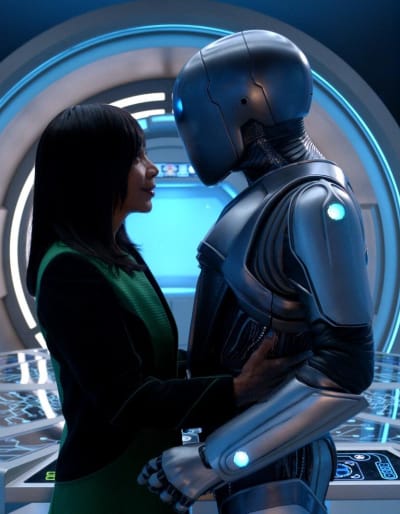
And Isaac’s generalization of his relationship with Dr. Finn to her children and future descendants is a real indication of his algorithmic affection.
It shows how his programming has evolved to include future expectations for their bond that extend beyond Dr. Finn’s lifespan, essentially transferring the essential nature of her presence to all those who carry her genes.
Of course, his desire to bond is a development that certainly eludes Kaylon Primary’s understanding.
Kaylon Primary: What is… a marriage?
Isaac: It is a ceremony during which one organism acknowledges their intent to service another for the duration of their mutual existence.
Kaylon Primary: You describe enslavement.
However, once the reasoning has been clarified and accepted, the Kaylon are the most compliant family in the history of weddings.
Imagine bringing four thousand ships full of relatives a thousand lightyears only to be told that most of them will have to watch the ceremony on a video broadcast. Biologicals would be right put out.
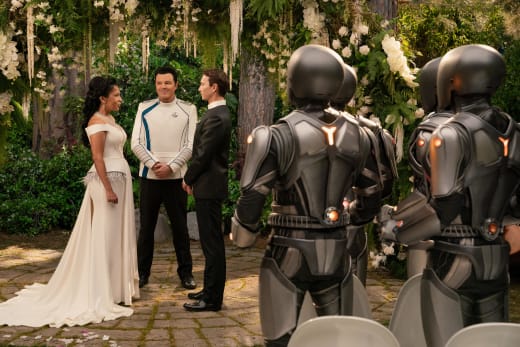
Another happy resolution is our Moclan family unit.
While I hope Topa and Grayson continue to enjoy a close relationship, I’m relieved that any thought of Grayson and Bortus pairing up seems to have dissipated.
The Moclan Renewal ceremony is problematic from the whole hunt-down-your-mate angle. Although, in this case, both are obviously consenting participants, it’s an uncomfortable ritual to perpetuate since one could assume the origins were not so mutually sanctioned.
I’d like to hear Heveena and Topa’s thoughts on some of the Moclan rites. It seems like they might approach Ja’loja differently, too.
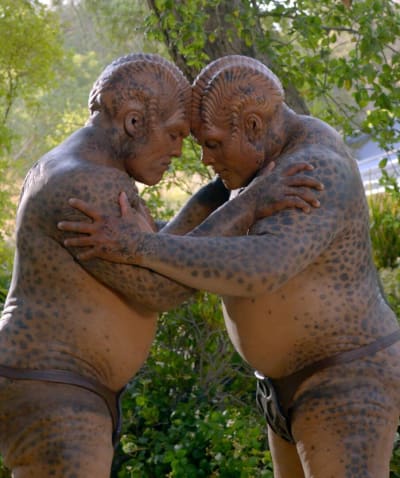
Like so many of this season’s offerings, we get to revisit an earlier adventure to take a deeper look at the societal dilemmas with the B plot here.
Returning to Sargas-4, the planet visited on The Orville Season 1 Episode 7, Mercer and Grayson have to face the repercussions of their choice to expose Lysella to the Union technology aboard the ship.
It’s not like the people are bad, they’re not. It’s just once you get so used to a messed-up way of doing things, it’s hard to remember how to be any other way.
Lysella
Her disenchantment with her world and despair at its prospects is inevitable in light of the knowledge that things are different in more advanced societies.
Once again, Grayson takes the lead in instructing the newcomer on the possibilities of technological gains and the dangers they pose to communities not ready to handle them.
Technology and societal ethics have to progress hand in hand, each one supporting the other incrementally. Anything else is begging for disaster.
Grayson
It speaks to Lysella’s good-intentioned character that she boldly attempts to steal (figurative) fire from the gods to enlighten her people. Happily, she is spared a Prometheus-like punishment.

In providing Lysella with an explanation for the Planetary Union’s laws about cultural contamination through the example of Gendel-3, Grayson also illustrates the dangers of interference for us.
Short cuts have a way of leaving out important bits.
Lysella: If we had all this, we could be better people.
Grayson: It doesn’t quite work like that. You gotta flip it. You get all this by becoming better people.
Of course, Lysella’s argument is understandable. Her perspective is emotional and heavily filtered by what Grayson accurately deems a form of survivor’s guilt.
It’s almost guaranteed that Sargas-4 will not advance to a stage appropriate for Union contact during Lysella’s lifetime. Everyone she knows and cares about will live, suffer, and die under the regime she escaped. It’s a bleak reality that will she will carry with her.
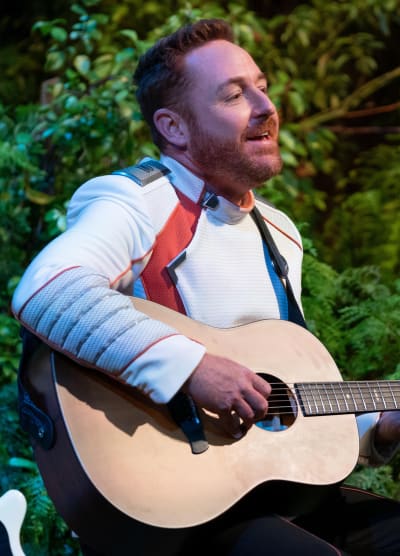
The somber messaging of the Lysella and Sargas-4 plotline is somewhat balanced by the humor of the wedding planning antics.
LaMarr’s sow-your-wild-oats advice is predictably disastrous.
Dr. Finn: If you ever again give Isaac a single tidbit of personal advice, even if it’s about what cologne to use, I will come down here and I will eat your little punk ass for breakfast with a glass of grapefruit juice. You got me?
LaMarr: Yep, I got you.
Bortus and Malloy’s jostling for best man honors feels somewhat uneven, while Bortus’s attempt at throwing a bachelor party is simply sad.
Meanwhile, Stripper Isaac may, in fact, be my absolute favorite comedic moment of the entire series.
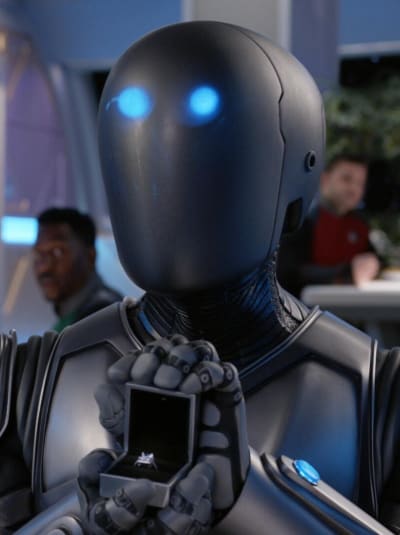
I’ll fully own that I’m a fan of really well-written wedding vows.
In this instance, the writers knocked it out of orbit with vows both reflective of the speakers’ respective natures and deeply resonant in meaning.
Some women shut their eyes and dream. Others open their eyes and hope. Dreams are what you create for yourself. Hope lets the universe decide for you. I’m glad that I opened my eyes. You have touched me in a way that no human ever could. I can’t wait to spend the rest of my life with you.
Dr. Finn
Dr. Finn’s emphasis on having her eyes open speaks to the importance of knowing the life ahead won’t be perfect, but she can hope for the best.
I am unable to reciprocate your love. However, the only occasion upon which I have ever made an error in judgment was 21 hours, 7 minutes, and 14 seconds after you terminated our coupling. I cannot experience affection. However, I prefer not to experience… error. It is possible you will ensure my continued efficiency.
Isaac
Isaac’s recognition that he is better for having Dr. Finn in his life is as close to an analog equivalent to love as he’ll ever be able to express.
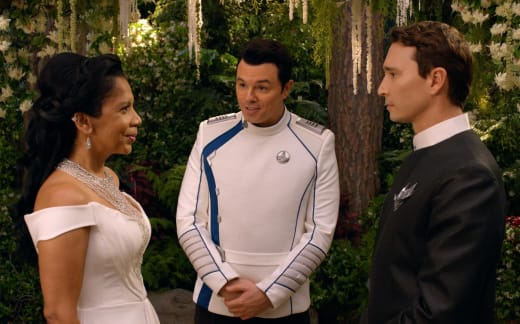
And I won’t ignore the fact that MacFarlane once again salutes the love of Trek that inspired the series as Mercer gets to give his version of the wedding speech both Picard and Kirk gave on Star Trek: The Next Generation Season 4 Episode 11, “Data’s Day,” and Star Trek: The Original Series Season 1 Episode 14, “Balance of Terror,” respectively. Nice touch, that.
One of the great privileges that has always been bestowed upon ships’ captains since the days of the ancient sea-faring vessels is the honor of uniting two people in matrimony.
Mercer
If the finale has any structural flaw, it’s that Lysella’s story doesn’t align well with the bonding theme prevalent on the other side of the narrative.
It’s too bad Lysella recurs after Charly’s death. I would’ve liked to have seen Charly have a breakthrough realization that a lot of her rage towards Isaac and the Kaylons stemmed from her own survivor’s guilt over Amanda dying to save her.
Speaking of recurring… how cool was it that the egg salad sandwich from The Orville: New Horizons Season 3 Episode 6 makes its triumphant return?
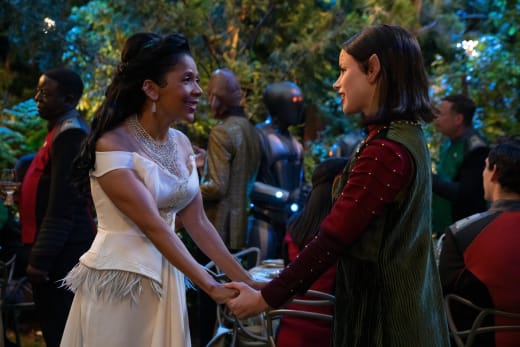
Kidding. Alara Kitan’s appearance is a pure delight and a major part of why this feels like a series finale.
It’s darned impressive how they manage to cram her entire exposition into a few minutes of catching up with her old crewmates.
Closing out on Malloy’s cover of James Taylor’s “Secret O’Life” which advises the listener to live in the moment, is elegantly on the nose as the show’s future — as is true of all futures — is unknown.
If this is the last we see of The Orville and her crew, I salute their journey with respect and appreciation. They’ve managed to transcend any expectations I held coming into this season.
If another season is greenlit, it’ll be fascinating to see whether they aim even higher in terms of production, narrative, and character growth.
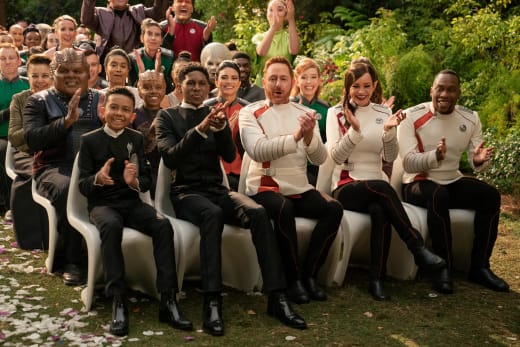
Well, Fanatics, are you closing your eyes and dreaming of a resolution to Mercer’s paternity situation or opening them and hoping for another encounter with Dinal and her people?
Do you suspect efficiencies will drive them towards a film-length conclusion? Or maybe a series of streamed specials?
Hit our comments with your thoughts and theories about the finale and the season! Let’s discuss!
Diana Keng is a staff writer for TV Fanatic. Follow her on Twitter.





































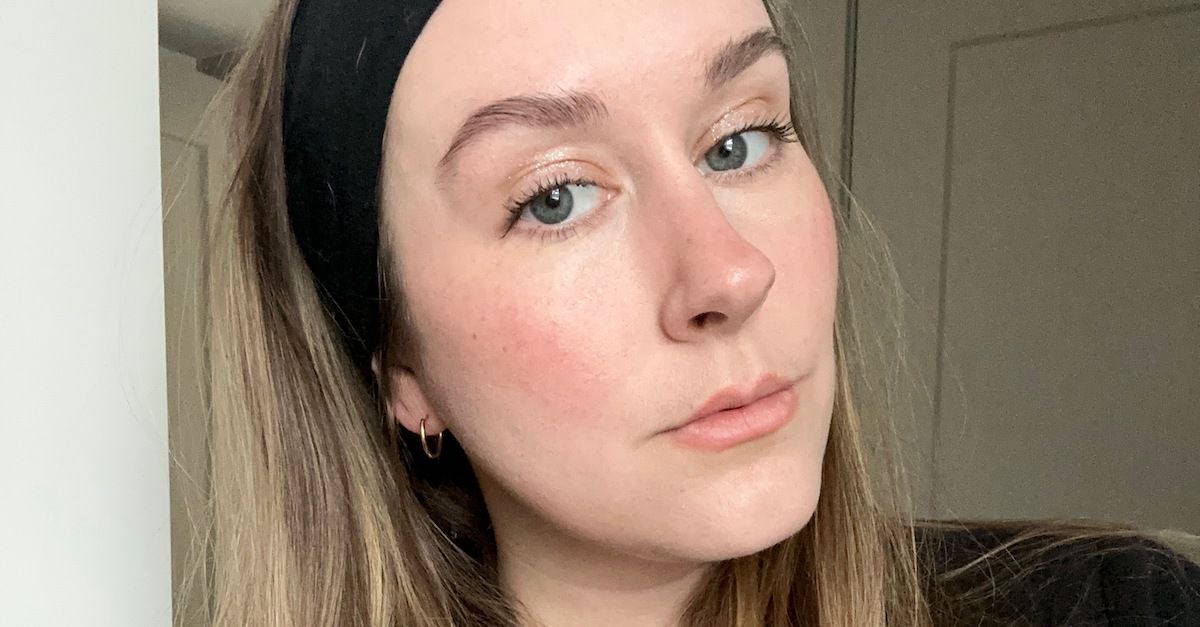




















![Mason Ramsey – Twang [Official Music Video] Mason Ramsey – Twang [Official Music Video]](https://i.ytimg.com/vi/xwe8F_AhLY0/maxresdefault.jpg)











